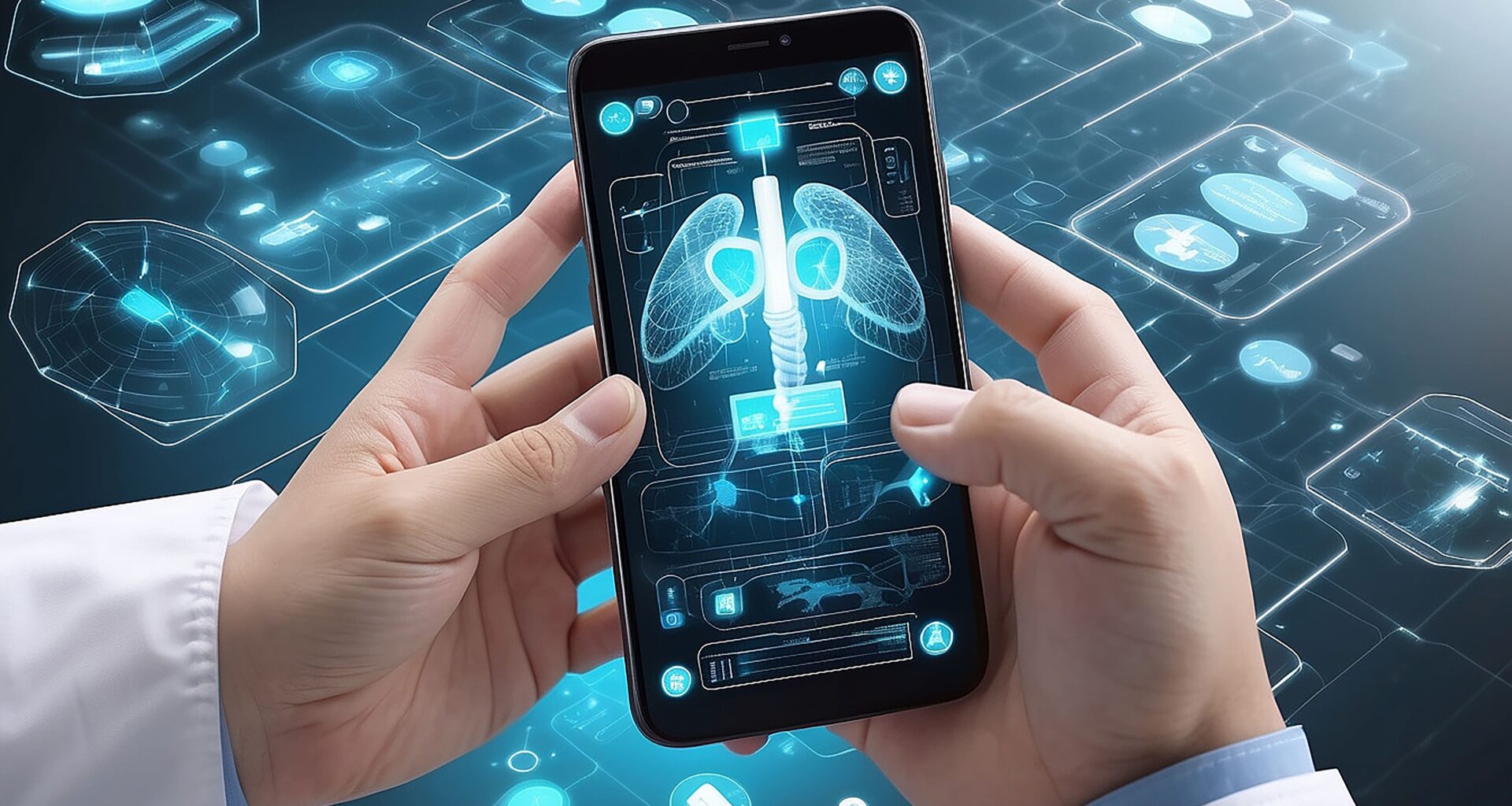For many communities, especially those lacking resources, a critical barrier to healthcare is the limited availability of accurate diagnostic tools. Conventional methods often involve expensive equipment, invasive procedures, or trained healthcare professionals, making them unsuitable for resource-constrained settings. However, a new wave of innovation is emerging – digital health solutions powered by Artificial Intelligence (AI) integrated with smartphones are radicalizing community healthcare screenings.
This blog explores how smartphone-based AI technologies are transforming the landscape of preventive digital health. By leveraging the ubiquitous nature of smartphones and the power of machine learning, these digital health solutions enable inexpensive, accessible, and often non-invasive health screenings. They can be used for a diverse range of medical conditions.
Smartphones As Diagnostic Tools
The past decade has dramatically shifted how we use our smartphones. Gone are the days of simply making calls and sending texts. Today, a staggering 86% of people worldwide carry a pocket-sized powerhouse in their hands. These devices are no longer just communication tools; they’ve become powerful digital health allies.
Smartphones Equipped For Healthcare
What makes these devices so well-suited for digital health applications? Modern smartphones are packed with advanced features that were once the exclusive domain of specialized equipment. These features include:
- High-Resolution Cameras: Imagine a camera powerful enough to capture detailed images of skin lesions. These high-resolution cameras are now standard equipment on most smartphones.
- Sensitive Microphones: Your phone’s microphone can pick up subtle changes in your voice or breathing patterns that might be undetectable to the naked ear. This opens doors for early detection of respiratory illnesses or even mental health conditions, all within the realm of digital health.
- Advanced Processors: The processing power of modern smartphones rivals that of desktop computers from just a few years ago. This allows them to run complex algorithms that analyze data collected from the other sensors, turning your phone into a sophisticated digital health diagnostic tool.
This hardware foundation paves the way for the development of innovative smartphone-based digital health applications.
AI, The Engine Powering Mobile Health Screening
AI, particularly machine learning, plays an instrumental role in analyzing the data collected by smartphone sensors. These algorithms can be trained on a diverse and vast dataset of medical information, enabling them to recognize patterns and trends that may have hints of potential health concerns.
For instance, an AI-powered digital health app might analyze a user’s voice recordings to detect early signs of respiratory illnesses. Similarly, an app could utilize camera images to monitor skin conditions or even analyze retinal blood vessels for diabetic retinopathy.
Benefits Of Smartphone-Based AI Screenings
The integration of AI with smartphones offers many compelling advantages for elevating community healthcare screenings within the digital health landscape:
- Accessibility: Smartphones are already widely available in most communities, cutting down the need for expensive equipment or travel to specialized facilities. This allows for convenient and timely screenings, particularly for individuals residing in remote areas.
- Affordability: Developing and deploying smartphone-based AI solutions is significantly cheaper than traditional diagnostic methods. This makes preventive healthcare more accessible for underserved communities with limited financial resources.
- Non-Invasiveness: Many AI-powered screenings utilize smartphone sensors for data collection, making them non-invasive and painless for the user. This can encourage individuals to participate in regular screenings they might otherwise avoid due to discomfort or fear.
- Early Detection: AI algorithms are adept at identifying subtle patterns in data that might escape the human eye. This can facilitate early detection of health issues, enabling a timely intervention and improved treatment outcomes, ultimately leading to a healthier population through proactive digital health.
- Scalability: Smartphone-based solutions can easily be scaled up to reach large populations. Healthcare systems can significantly increase community screening coverage by deploying such apps widely.
- Data-Driven Insights: Data collected through these AI-powered screenings can offer valuable insights into population health trends. This information can be used to develop targeted healthcare interventions and disease prevention strategies.
Examples Of Smartphone-Based AI Screening Technologies
Researchers have developed several promising AI-powered apps for the early detection of various health concerns by leveraging the power of smartphones within the digital health sphere. A few of the important ones are listed as under:
- Skin Cancer Detection: Apps analyze images of moles and skin lesions to identify potential signs of melanoma.
- Diabetic Retinopathy Screening: AI algorithms can analyze retinal images captured by smartphone cameras to detect early signs of this diabetic complication.
- Mental Health Monitoring: Apps can track speech patterns, facial expressions, and activity levels to assess potential signs of depression or anxiety.
- Respiratory Illness Detection: AI can analyze coughs and breathing sounds caught through the phone’s microphone to detect respiratory illnesses like pneumonia.
Challenges And Considerations For Global Adoption
While smartphone-based AI screening provides tremendous potential, there are roadblocks that need to be addressed for widespread adoption, breaking geographical barriers:
- Data Privacy And Security: Ensuring the privacy and security of sensitive health data compiled by these applications is critical. Robust security protocols and clear user consent procedures are equally essential.
- Regulatory Frameworks: Regulatory bodies need to set clear guidelines for the development and deployment of AI-powered health screening applications.
- Digital Divide: Unequal access to smartphones and reliable internet connectivity in specific communities can deteriorate healthcare disparities further.
The Future Of AI-powered Healthcare Screenings
The integration of AI with smartphones is rapidly transforming the landscape of preventive healthcare. As technology continues to evolve and researchers develop even more sophisticated algorithms, the range and accuracy of smartphone-based AI screenings are poised to expand significantly. By addressing the existing challenges and ensuring equitable access, this technology has the power to revolutionize healthcare delivery, especially in underserved communities, enabling early detection, improved health outcomes, and, ultimately, a healthier population.
[Also Read: DTx – Digital Health Solutions For Health Management]













